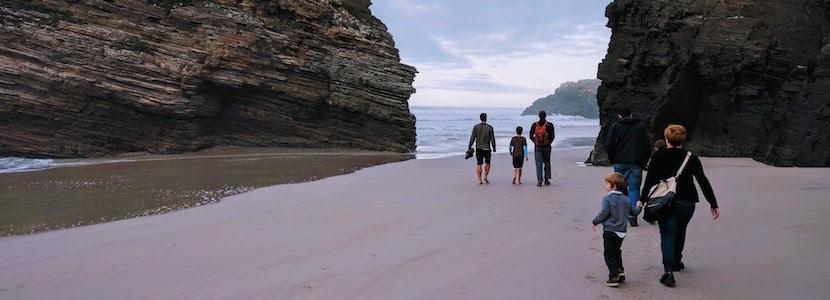
“They’re Too Young to Appreciate It” & Other Objections to Traveling With Kids
Let’s take a well-deserved break from talking about houses and moving and house projects and money and dive back into the topic of travel!
As somewhat seasoned travelers who have now entered the life phase of family travel, we run into a fair number of objections to traveling with young kids (and even medium-sized kids):
“They won’t remember it.”
“They’re too young to appreciate it.”
“It’s too expensive to take the whole family.”
“The kids would rather just stay home and play (latest trending video game) anyway.”
“It will disrupt their routine.”
“It’s not safe.”
These are all reasonable concerns, but obviously we’re still forging ahead toward many a ticket counter every year anyway. Let’s discuss:
The Cost Problem
To be fair, once the munchkins are over 2 years old, it becomes significantly more expensive to travel as a family compared to how it was when you were 22 and single and could easily sleep for 10 hours in whatever on-sale middle seat was available in coach. Unless you are currently swimming in money, cost is a legit reason to pause before diving into family travel. A friend of mine did a great job laying it out in this article.
Our family’s answer to this problem is two-fold: First, we purposely pursue travel-related hobbies that are good for our physical health and also translate into saving money. We hike and bike and swim. We camp and backpack in the summer and buy local seasonal ski passes so we can enjoy the outdoors in the winter. Once you have the proper gear (and proper gear that is well taken care of can last decades) you are all set for years and years of cheap outdoor family fun. Second, we travel-hack. Travel-hacking is not for everyone, but it works well for us because we are somewhat flexible on when and where we will travel.
Our family trips in the last few years have ranged from a pretty pricey trip to Europe to a bargain trip to Maui to epic backpacking adventures that cost about $20 per person.
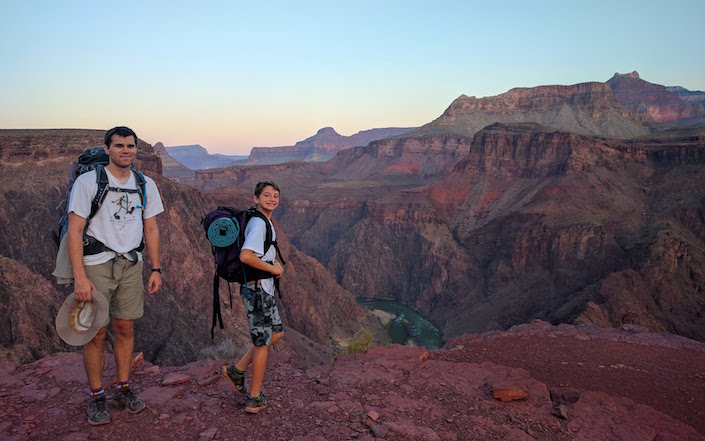
The “They Won’t Remember It” Problem
What I say to this is: Who cares? Do you remember all of your childhood experiences? Do I? Of course not. I don’t even remember everything that happened last month. Were those experiences still influential in shaping who I am and how I feel right now? Absolutely.
The point of the things we do for ourselves and our kids is not that we remember every detail. It’s that they change us, our relationship to those around us, and our relationship to our world – hopefully for the better. This change can happen at any age and at any stage of mental development or ability. Traveling with young kids introduces them to new sounds, smells, tastes, and types of people. It teaches them to be adaptable.
Those of us who do remember the trip have the privilege of telling the kids about the things they did and the places they’ve been. You can bet that telling my son “You probably don’t remember this, but when we were in Bolivia with you…” has an effect on how he perceives himself, his place in the world, and his own abilities as he becomes a young adult traveler.
We’ve been flying with Babykins since he was 4 weeks old. I don’t care one lick that he won’t remember that first trip. I had a blast, and he learned how to take baths in my friend’s sink without fussing. I have a picture of him in his baby carrier in the Boeing factory that I love. I genuinely believe that trip was the start of teaching him to sleep well anywhere. Everyone wins.
You can read our tips and tricks for air travel with infants here.
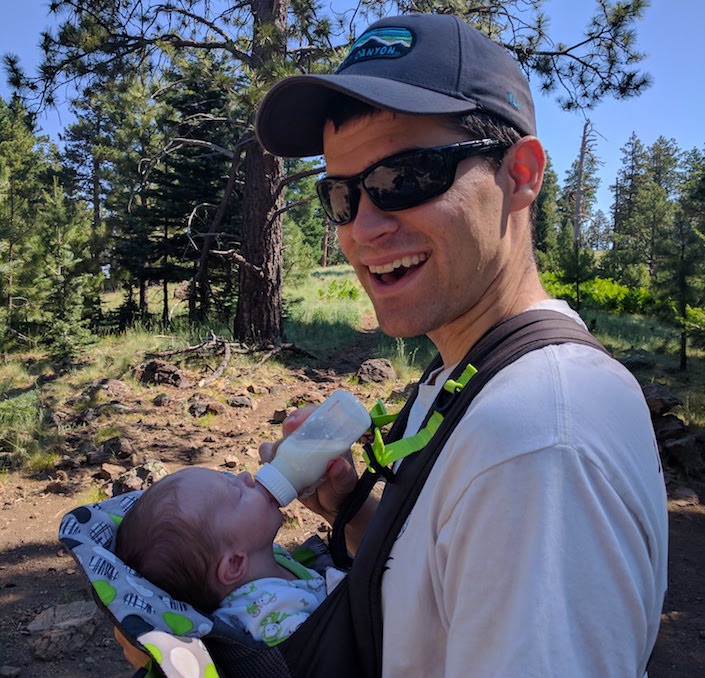
The “They Won’t Appreciate It” Problem
What we’re really saying when we say this is that kids don’t appreciate things the same way adults do. This is absolutely true. The last time we were in a museum appreciating some ancient Greek statues, my son asked: “Can we go somewhere with less naked people?” and then proceeded to sit down on the floor an play with an electrical outlet for the duration of our statue appreciation time.
But also true is the fact that none of us adults appreciate things the same way either – nor could we even if we wanted to. We filter things through age and life experience and our mood in the moment. Experiences are poignant or intense or fun or blasé to us for a mysterious combination of a million different reasons.
I’m sure there are many other adults that are better equipped to appreciate the places I travel than I am.
But should I not go to the Louvre just because I’ve never studied art? Or skip the Grand Canyon because I haven’t studied geology? Should I not see Pearl Harbor because I’ve never been in the military? Should the kids not see any of those things just because they are too young to appreciate them the way I do?
Of course not.
Even if we waited for the kids to mature and tried to time our trips for their best possible understanding, we wouldn’t have enough time to do all the things we want to do with them. So Baby went to New England and saw the fall colors when he was 4 months old. C went to Normandy and walked on the D-Day beaches when he was in 4th grade. They appreciated it in their way. We appreciated it in ours.
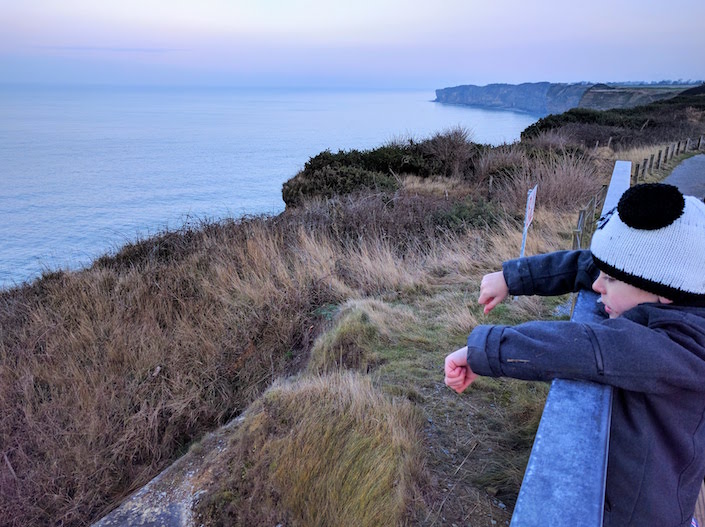
The Disrupted Routine Problem
Come on. If we followed this objection to it’s logical end we would never leave our own time zone.
In my opinion, the sooner you teach kids that they can survive a disrupted routine – or that they can do their usual routine in a brand new place – the better. And the sooner you as a parent learn that you can navigate disrupted routines and new places – not just to survive them but to actually enjoy the journey – the better off the whole family will be.
Now obviously this varies kid to kid. Some will sleep on planes and in cars, and some won’t. Some will be more affected by jet lag than others. Some will melt down when they are tired and in a brand new environment. Some – like C – will have acute FOMO and stay awake in a zombie-like state for nearly 30 hours of travel just in case something interesting happens, and then pass out face-down on a restaurant table without so much as a peep. Some will want a familiar stuffed animal on every trip, and some won’t care. Some will be highly suspicious of new foods and some will eat anything. That’s all fine.
But none of these are reasons to stay home. Pack up the stuffed animals and the organic granola bars and the Pepto and the Benadryl and hit the road.
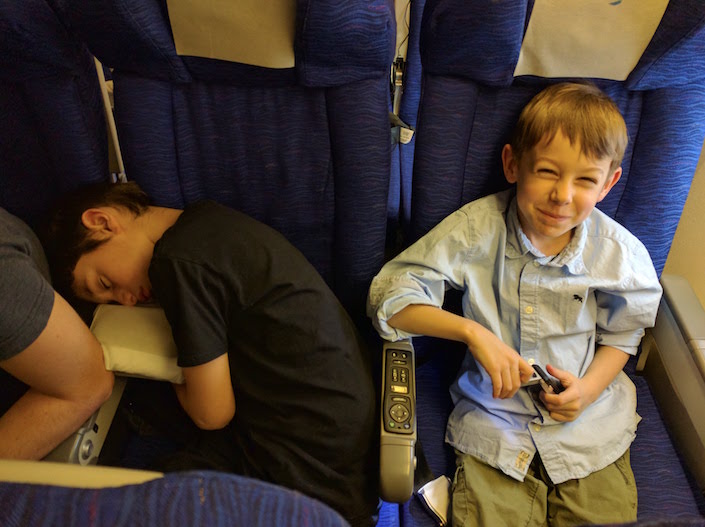
The Problem of the Kids Preferring to do Something Else (aka “This is so BORING!”)
This is the circle of life, people. You complained to your parents that everything was boring and unfair. Now your kids have arrived to complain to you that everything is boring and unfair. If all goes well, you’ll someday get to sit back with a drink in your hand and listen to their kids complain to them that everything is boring and unfair.
But in the meantime you are stuck with a couple of preteen malcontents who would much rather be left alone in a dark house to play video games than jet off to a tropical paradise with their family. Trust me: I get it.
Here’s our solution: 1. We go on our family trips anyway. The parents call the shots in our family, not the kids. Some trips are optional (kids may sometimes elect to go to church camp or grandma’s instead) but most are not. 2. Excessive whining = no screen time. Yes, even on family vacation. This shuts down the opposition pretty quickly, since kids are smart enough to figure out that a travel day without screens is even more hideously boring than family time.
Sure, we occasionally cater to what kids want to do during our vacations. But kids ultimately don’t know what’s good for them or good for the family. We can teach them by example to love travel and adventure and family time and to power through the inconvenience, uncertainty, and even boredom that sometimes comes with it. They will be better for it in the long run.

The Safety Problem
I actually already wrote about this here. I could go on an on about all the research and statistics that tell us that travel is actually pretty darn safe (yes, even the kind that includes outdoor adventures), but the main point I want to make here is this:
Your response to perceived and real danger will hugely impact how your kids interpret their world. If you huddle with them in your house and refuse new experiences, implying (or outright saying) to them that everyone who doesn’t think like you and every place that isn’t familiar might be unsafe, they are going to have a heck of a hard time becoming confident, friendly adults.
I use the house-huddling example for the sake of hyperbole, but consider that every time we don’t do something or tell our kids not to do something because we’re worried about unconfirmed hazards, we’re doing everyone involved a disservice. Every time we over-react to an injury or a situation that could possibly have turned out worse than it did, we are shaping how our kids feel about themselves and the world.
Don’t refuse to travel with your kids because you’re worried about some crappy one-in-a-million situation that was on the news. Be aware and be smart, for sure. Prevent problems where you can.
But then put a smile on and enjoy your adventures with your children. There are great memories waiting to be made.
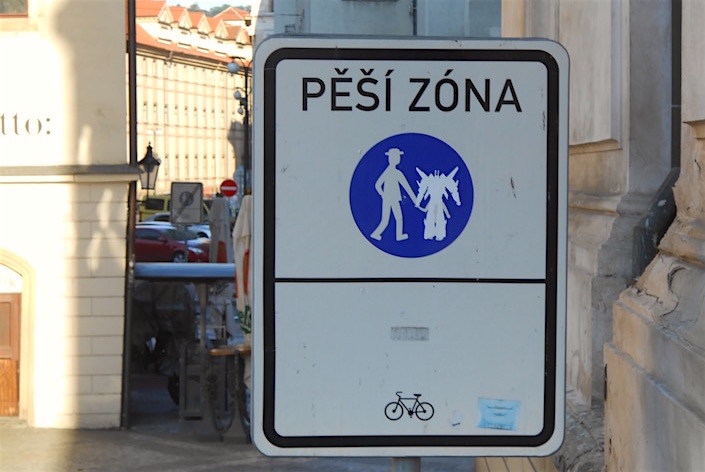
6 Replies to ““They’re Too Young to Appreciate It” & Other Objections to Traveling With Kids”
I am impressed with your writing skills as well as with the layout on your blog.
Is this a paid theme or did you modify it yourself? Either way keep up the excellent writing!
Thanks Trish! This is a WP Lighthouse theme. Last time I checked there was a free option and an option to upgrade for a fee. 🙂
Great post. Extremely helpful information particularly the last part 🙂
Glad you enjoyed it, Kurt! Thanks for reading! 😀
Good post! I am experiencing many of these issues/objections as well!
Thanks for your comment Francisca! Glad you enjoyed the post, and I hope it encouraged you to keep traveling with your kids. It’s not always easy, but always worth it! 🙂